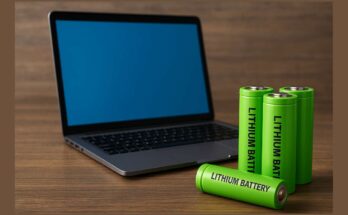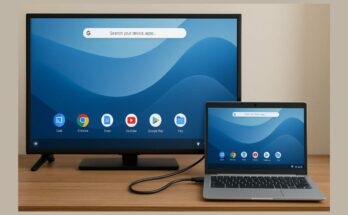A slow laptop can be highly irritating, especially for work, studying, or entertainment purposes. If your laptop takes forever to boot up, runs applications with much lag, and keeps freezing every now and then, the slowdown is fast becoming unbearable and worth finding out.
This blog will discuss the common reasons why laptop slow down and some terrific ways to fix them to make them faster.
1. Starts-ups Overloaded
Oh God! As soon as you turn on your laptop, you see all those programs restarting and about as time-consuming as all those startup programs are for booting up and running on for such an incredibly long time.
Solution:
- Manually start or switch off any startup programs you don’t need using the Task Manager (Windows) or System Preferences > Users & Groups > Login Items (Mac).
- Use ‘Ctrl + Shift + Esc’ on Windows, go to ‘Startup tab’ and disable unwanted programs.
- In System Settings, Login Items under General, you can remove unnecessary apps on Mac.
2. Less Memory:
RAM or Random Access Memory is a key requirement for multitasking. A low RAM capacity, however, means that the laptop becomes incapable of simultaneously running various applications.
Solution:
- Upgrade your RAM in case your laptop allows that.
- Shut down all unused applications and even those background processes running.
- Use lighter alternatives instead of RAM-Hogging applications.
3. Old or Failing Hard Disk
Conventional Hard Disk Drive (HDD) is slower as compared to Solid State Drive (SSD). Old HDDs can also develop bad sectors with time, which in turn leads to slow performance.
Solution:
- Upgrade to SSD; you can get speed in significant proportion.
- Defragment your HDD using Windows’ inbuilt Defragment and Optimize Drives tool.
- Perform regular backup of data to save yourself from hardware failure.
4. Exceeded Background Processes
Theses Applications or background processes consume resources from the system which could slow down the performance experience.
Solution:
- Open Task Manager (Windows) or Activity Monitor (Mac); identify those programs that hog resources.
- End unnecessary and uninstall unused applications.
5. Outdated Software & Drivers
Your laptop may suffer an inefficient performance or compatibility issues due to the fact that the operating system, application, or driver could all be working on an outdated version.
Solution:
- Keep Windows/macOS updated.
- Update drivers either with Windows Update or from the manufacturer’s website.
- Keep the applications updated.

6. Overheating Issues
Overheating is a reason for CPU performance throttling, which leads to the slowing down of your laptop. Dust accumulation in the cooling fan blocks the airflow, further adding to the issue.
Solution:
- Use compressed air to clean out the cooling vents and fans of your laptop.
- Use a cooling pad to facilitate better heat dissipation.
- Don’t keep the laptop on soft surfaces, like on your beds or couches.
7. Infection of Malware or Virus
Viruses and malware cause a laptop to slow down because they consume system resources while carrying out harmful activities in the background.
Solution:
- Install some good antivirus and run a complete scan.
- Remove unwanted software and possible dubious browser extensions.
- Be careful when downloading files off the Internet.
8. Low Free Space
In fact, a hard disk that is full to the brim means that the laptop performance will dip since free space is needed for the system to be in efficient operation.
Solution:
- Delete unwanted files, downloads that have not been used lately, and applications not being used.
- Move large files to external hard drive or cloud storage.
- Use Disk Cleanup (Windows) or Optimize Storage (Mac).
9. Too Many Publication Browser Tabs
So, the problem is that excessive memory usage causes your laptop to slow down, because you’re using too many tabs.
Solution:
- Close the tabs unwanted.
- Use a browser well managed in memory like Microsoft Edge, Brave or Opera GX.
- You can also install an extension such as The Great Suspender (Chrome) to suspend the inactive tabs.
10. Option for Corrupted System Files :
A laptop may not function properly if there are corrupted or missing files in the operating system.
Solution:
- For Windows, run the System File Checker (SFC) through command prompt by typing sfc /scannow.
- For Mac, use Disk Utility to verify and repair disk errors.
Final Words
Slow performance of laptop doesn’t always mean that it requires a new one. Actually, knowing the root cause of sluggish speed helps improve performance in terms of speed and efficiency. These changes can either involve hardware upgrade, system cleaning or malware removal among many things.
If everything did not work and your laptop is still slow, then maybe it’s time to look for an upgrade. We would love to hear your feedback, whether these tips helped or if you have any more troubleshooting issues!
If You Want To Know More About Laptops Visit Techbyprime !




